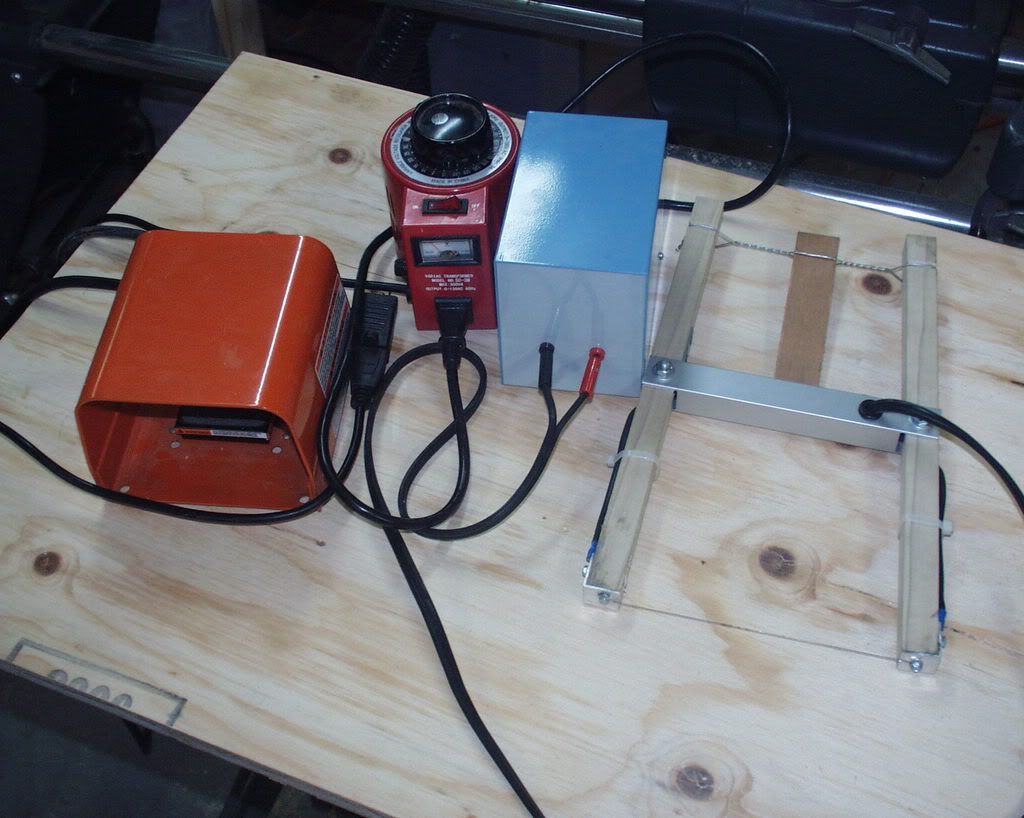I have a 10A autotransformer variac that goes from a few volts to just over line voltage. It was given to me a few years back, and have never found the right use for it. It's missing the knob on top, and since I never had a use for it yet, I never fashioned a knob. I'm pretty sure the adjustment shaft is isolated - because I've adjusted it while it's powered, and I'm still alive to talk about it - but even still, I'd be more comfortable with an insulated knob.
A few months ago, I fried some circuitry with it while I was attempting to make a high current DC power supply using it. It was about 3am when this happened and I should have gone to bed long before that, instead of playing with potentially lethal currents and voltages.
Can anyone give some theories or experience with using it as a motor speed control for a 3/4 HP universal motor? The current is adequate, but I'm a bit rusty on my AC motor theory...
Any other creative uses for this?
-Brian
A few months ago, I fried some circuitry with it while I was attempting to make a high current DC power supply using it. It was about 3am when this happened and I should have gone to bed long before that, instead of playing with potentially lethal currents and voltages.
Can anyone give some theories or experience with using it as a motor speed control for a 3/4 HP universal motor? The current is adequate, but I'm a bit rusty on my AC motor theory...
Any other creative uses for this?
-Brian





